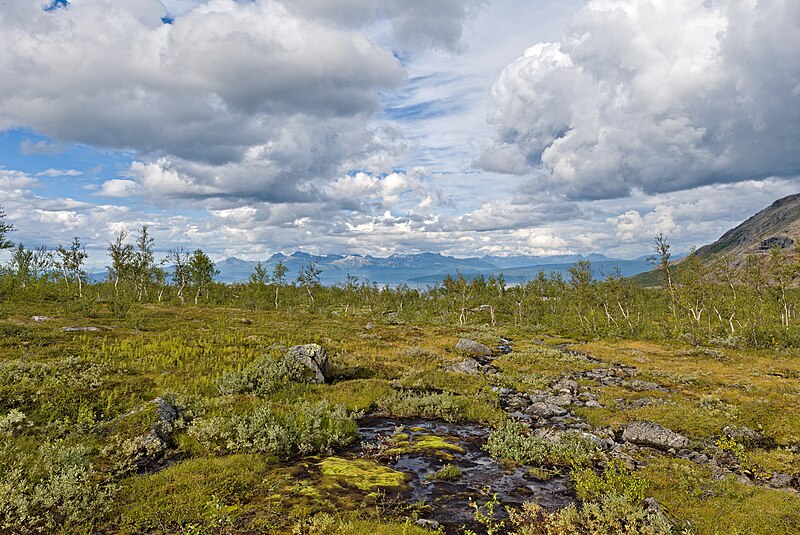
Moss in the Arctic tundra insulates permafrost better than other groundcovers. But grass-like plants and trees are infiltrating moss territory as the climate warms, which could accelerate permafrost losses. Credit: Wikimedia commons/ Leonhard Lenz/ CC0 1.0
Featured Research
Research roundup: Stormwater and failing infrastructure
Olympic triathletes swam in Paris’ Seine River today following a $1.5 billion effort to clean up the waterway. Catch up on the latest research in stormwater system management and water pollution.
[models help build cheaper, smarter infrastructure][high tide flooding in stormwater pipes can hurt water quality][stormwater system high tide flooding likely common along the East Coast of the United States][examining stormwater “equity” versus “efficiency”][rainfall and gray infrastructure limit green infrastructure planning]
Tundra moss losses may accelerate permafrost thaw
Mosses act as excellent insulators, slowing down the thaw of permafrost in the High Arctic by as much as eight weeks, new research finds. But mosses and small shrubs are being edged out of the tundra by a warming climate, possibly accelerating the thaw of greenhouse-gas containing permafrost. [JGR Biogeosciences research]
Climate change will spread dengue fever-transmitting mosquitoes
As the climate warms, Aedes aegypti and albopictus mosquitoes will spread northward and westward throughout Asia, bringing deadly dengue fever with them. The study also finds that increasingly dense cities in the region will enhance the spread of disease in the future. [Earth’s Future research]
Boston radio frequency noise mapped by bicycle
Radios, computers and cell phones all clutter up cities with radio frequency “noise,” which can impact wireless communication and surveillance systems. Researchers mapped Boston’s radio frequency landscape by towing a mobile measurement system around the city behind a bike. The resulting map shows clusters of noise around dense areas of the city, such as Back Bay and Seaport. [Radio Science research]
Satellites find city heat islands are even hotter than expected
Urban heat islands are becoming more severe with climate change. New research finds that satellite ground temperature measurements detect hotter temperatures when compared to traditional satellite surface air measurements in New York City, with possible implications for cities worldwide. [GeoHealth research]
Commentary: The Anthropocene is an event, not an age
The International Union of Geological Sciences recently rejected the Anthropocene epoch as a geologic era. A new commentary argues that the Anthropocene should be considered an intensifying, ongoing event with no specific time period. [Earth’s Future research]
Imaging below the surface reveals one of Los Angeles’ webs of faults
Damage zones extend to either side of many faults and can affect how future earthquakes behave. [Eos Research Spotlight] [AGU Advances research]
###